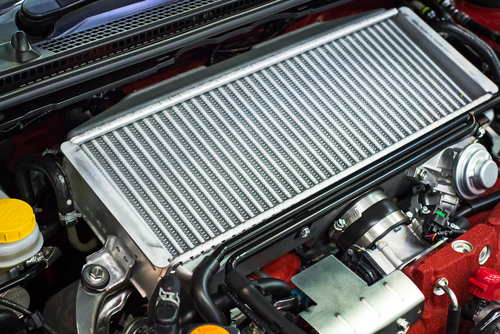Corrosion is one of the most common problems that can impact a car radiator. But how does corrosion damage car radiators? And what type of problems does corrosion cause for car radiators?
So how does corrosion damage car radiators?
There are a number of different causes of corrosion in car radiators, and these different causes can cause different problems and issues with different parts of the car radiator. These include:
- Electrochemical corrosion- As one of the most common types of corrosion in car radiators, this is often caused by a reaction between the aluminium or copper of the radiator itself, and the electrolytes present in the coolant. While the coolant should ideally prevent corrosion, this itself can become corrosive if it degrades over time, or if improper coolant mixtures are used. This causes the metal of the radiator to corrode.
- Pitting corrosion- Another common type of corrosion is pitting corrosion. This occurs when small areas of the radiator’s metal surface are exposed to highly concentrated corrosive substances. Pitting is particularly damaging because it creates small, deep cavities that can quickly penetrate the thin walls of a radiator, leading to leaks.
- Crevice corrosion- This type of corrosion most commonly occurs in the joints and connections of the radiator, where the coolant flow is reduced or even stagnant. This can cause contaminants to be trapped, creating an acidic environment which speeds up the process of corrosion.
- Environmental factors- Finally, environmental conditions and factors can make corrosion worse. The use of road salt or grit in the winter is one of the main culprits, as salt is highly corrosive. As such, when it comes into contact with the metal parts of a radiator, it can accelerate the oxidation process.
What are the impacts of corrosion on a car radiator?
There are a number of problems and issues that can be caused by corrosion in a car radiator. These include:
- Reduced cooling efficiency- The car radiator is responsible for cooling the engine and maintaining a good temperature. As a result, any form of corrosion that causes blockages or leaks can have a significantly negative impact on cooling efficiency. For example, blockages in the narrow channels reduce the ability of the radiator to transfer heat from the engine to the coolant effectively. This can lead to overheating, which in turn can cause severe engine damage if not addressed promptly.
- Leaks and coolant loss- The radiator can develop leaks as the level of corrosion progresses. This can be problematic for a number of reasons, including reducing the amount of fluid available to absorb the heat from the engine. This makes overheating issues worse. A major leak can lead to a sudden loss of coolant, which can lead to engine failure.
- Structural weakness- Over time, corrosion weakens the structural integrity of the radiator. The thin metal walls can become brittle and more prone to damage from minor impacts or vibrations. This structural weakness can result in more frequent radiator failures and the need for costly replacements.
- Contaminated coolant- Corroded particles can mix with the coolant, causing it to become abrasive. This contaminated coolant can damage other components of the cooling system, including the water pump and the engine block, leading to more extensive and expensive repairs.
How can you prevent corrosion?

Here at MRS Heat Transfer we are radiator, car heater, intercooler, and air conditioning experts, and we have the skills, knowledge and expertise to resolve any air conditioning or car heater problem. Why not get in touch today to find out more?

